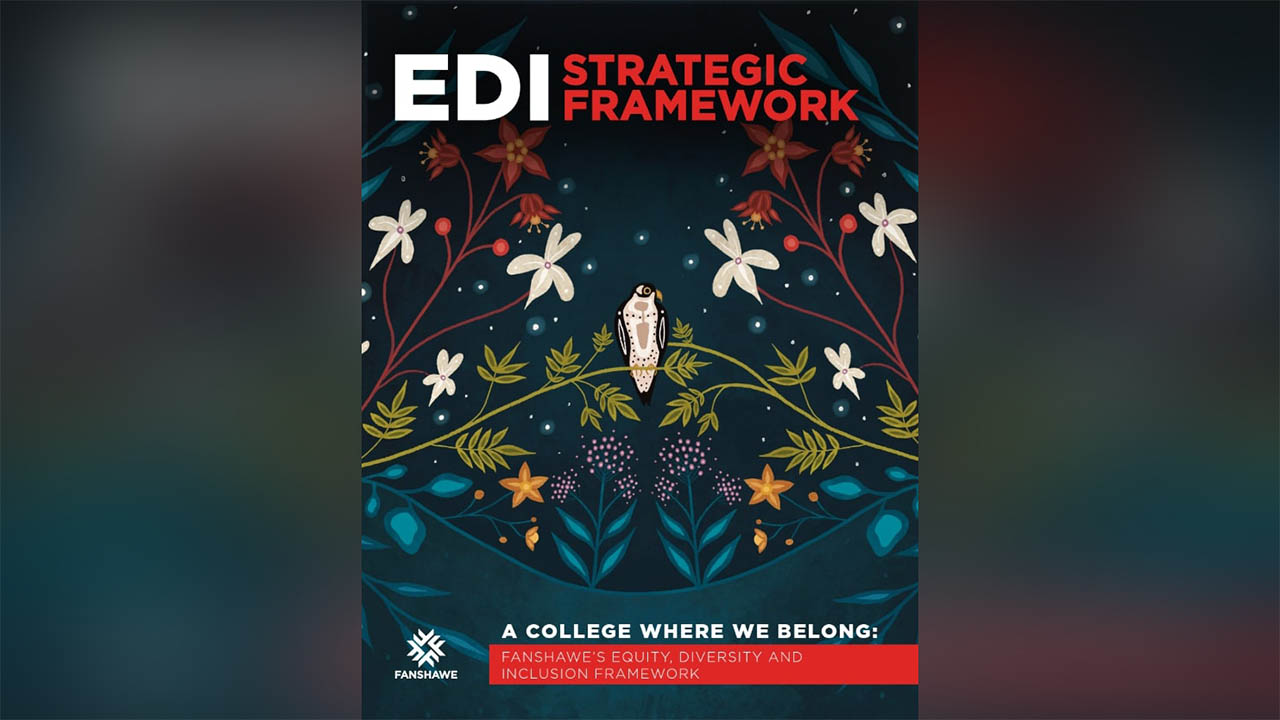Fanshawe launches new Equity, Diversity, Inclusion framework
 CREDIT: FANSHAWE COLLEGE
CREDIT: FANSHAWE COLLEGEThe new framework for EDI at Fanshawe College identifies six core priorities.
The new framework for Fanshawe’s Equity, Diversity, and Inclusion (EDI) team is titled, A College Where We Belong. The objective is to include those discriminated against within the educational community.
“This would be people of colour, Indigenous peoples, people with disabilities, members of the LGBTQ2S+ community, women, and non-binary folks. So, anyone experiencing an equity issue or oppression and thinking about the barriers they might face to that sense of belonging on our campuses,” said the Director of EDI, Joseph Pazzano.
The strategic framework identifies six core priorities:
• Belonging in our workplaces.
• Belonging in our classrooms.
• Belonging on our campuses.
• Belonging to our research teams.
• Belonging fostered by equity- informed supports.
• Belonging fostered by equity- informed leadership.
Each priority identifies the objectives that the educational institution should achieve, and they are based on EDI data collection, consultations, and evidence-based equity research. All this information has provided a better understanding of Fanshawe campuses’ individual, interpersonal, and systemic barriers and the opportunities to foster a sense of belonging.
“The trial around the murder of the Muslim family and the anti- LGBTQ2S+ march impacted our students and our staff because we live and work on these campuses, but we also live and work in the community where all this traumatic stuff is happening. So, we must break down and improve both things,” said Pazzano.
The department of EDI and the Anti-Oppression Task Force group launched in 2022. Since the summer of that year, 30 equity-deserving members from around the college have regularly met to create a sense of belonging on campus. In May of this year, the working group approved the EDI framework for presentation to the Executive leadership team.
“We had excellent, sometimes emotional, and difficult conversations about the challenges we all were facing. And this framework is those conversations put on paper and thinking about the priorities as an institution that we should focus on,” said Pazzano. Those conversations have been instrumental in the development of this EDI framework.
College leaders, employees, and students will work with the EDI and Anti-Oppression Task Force to develop goals and projects that align with the framework’s priorities and create a multi-year EDI action plan.
Fanshawe has added to its existing commitments to equality, diversity, and inclusion by adopting frameworks such as the Dimensions of the Federal Government Charter, the Scarborough Charter Against Black Racism, and the 50-30 Challenge.
“The 50-30 challenge is an initiative that the federal government aspires to gender parity for women and non-binary folks on boards and senior management teams and 30 per cent representation of other equity-deserving groups on the leadership team. So, the 50-30 challenge is about diversifying those highest levels of organizations and ensuring that leadership is diverse,” explained Pazzano.
As one of four regional English language centres in Canada, Fanshawe collaborates with Colleges and Institutes in Canada to provide leadership in EDI within the community.
According to Pazzano, “We have a fantastic team of advisors who are over in a building and on our London campus, and they have been having conversations with any business or organization who have signed on to this challenge and is seeking to diversify their leadership.”















